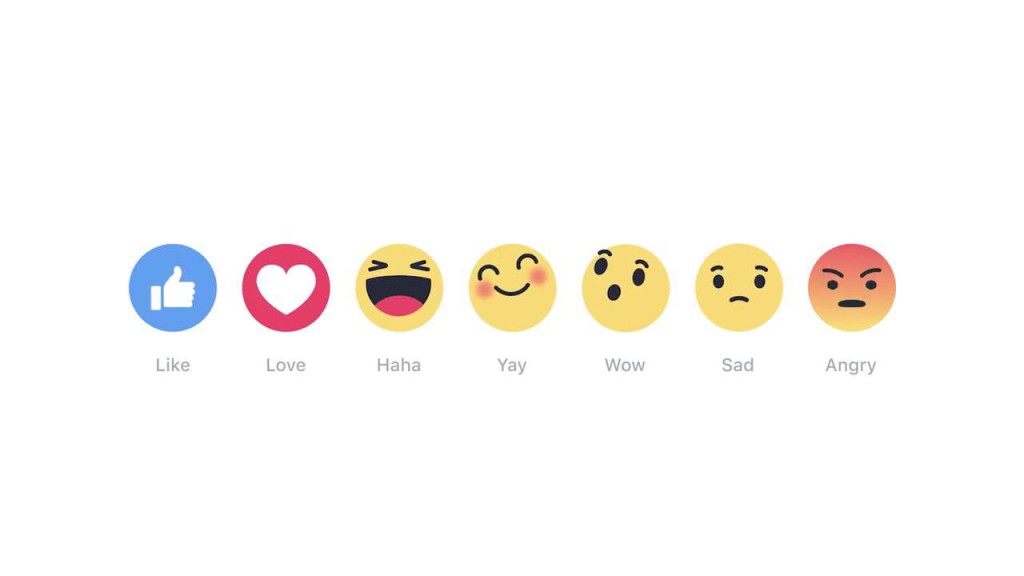If you have been on Facebook in the past 3 days, you’ll notice something different.
Facebook just released its new “reactions” to the world. Instead of merely “liking” a post, you can now choose a reaction such as “love”, “haha”, “wow”, “sad”, and “angry”. These feelings are symbolized into emojis that you can choose from on each post. The idea behind adding these additional options was to give users more ways to express their feelings to particular posts in a quick and easy way.
This new feature not only brings changes for users, it also brings changes for businesses and the way they interact with customers. Seeing a more descriptive emotion expressed by customers offers businesses a better insight into measuring audience sentiment towards content or advertisements. Facebook’s director of monetization product marketing, Richard Sim, stated, “reactions gives businesses a really crisp way of understanding on a multi-dimensional level how people are feeling about the things that they’re posting”.
A simple “like” does not always provide the business with enough context as to what their audience’s true thoughts towards a post. Reactions are tools that give businesses the opportunity to capture a more accurate view of their audiences’ sentiments.
As a new feature, Facebook Reactions, have a long way to go and it is unclear how these reactions will be used in the future. Implications have been made that the various reactions could be factored into the news feed algorithm, making it even more essential for businesses to connect with their audiences. Richard Sim, Facebook’s director of monetization product marketing also said, “Over time we do expect to have a better understanding of how these different Reactions impact what people want to see in their news feed. So it’s very possible that ‘loves’ or ‘hahas’ may be treated differently. We’re going to learn this as we’re going through testing”.
Reactions could also be used as tools for businesses to provide better customer service to a customer that, for instance, chose “angry” on a certain post. Rumors also have been circling that Reactions could even affect the Facebook advertisements. After all, advertising is about appealing to emotions with consumers – and Facebook Reactions are a visual way to see consumer emotions.
As the new feature develops, interesting and exciting changes in the way Facebook is used by businesses will also ensue.

